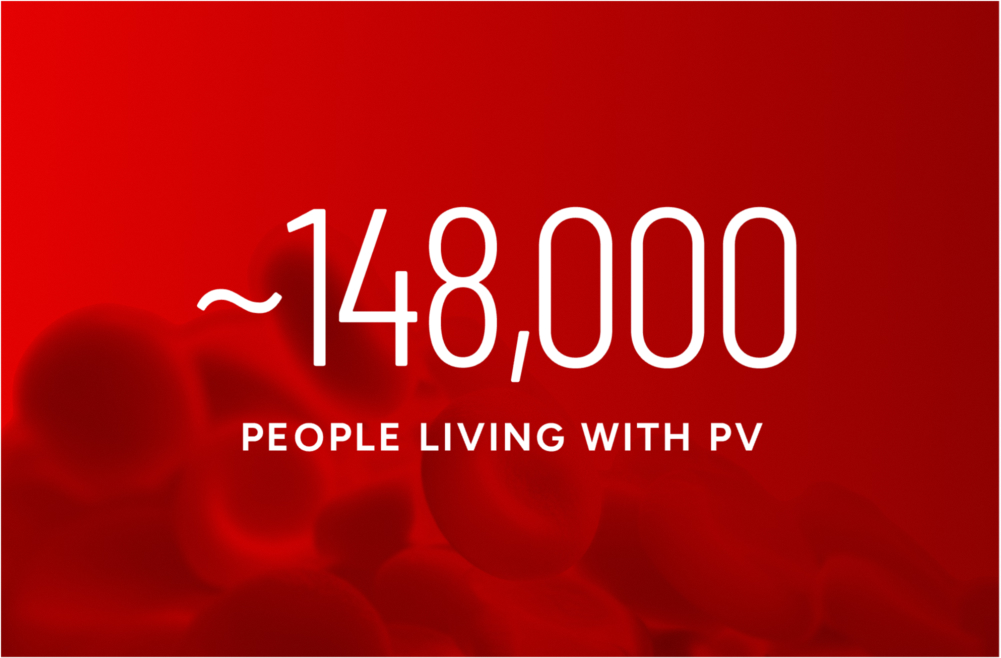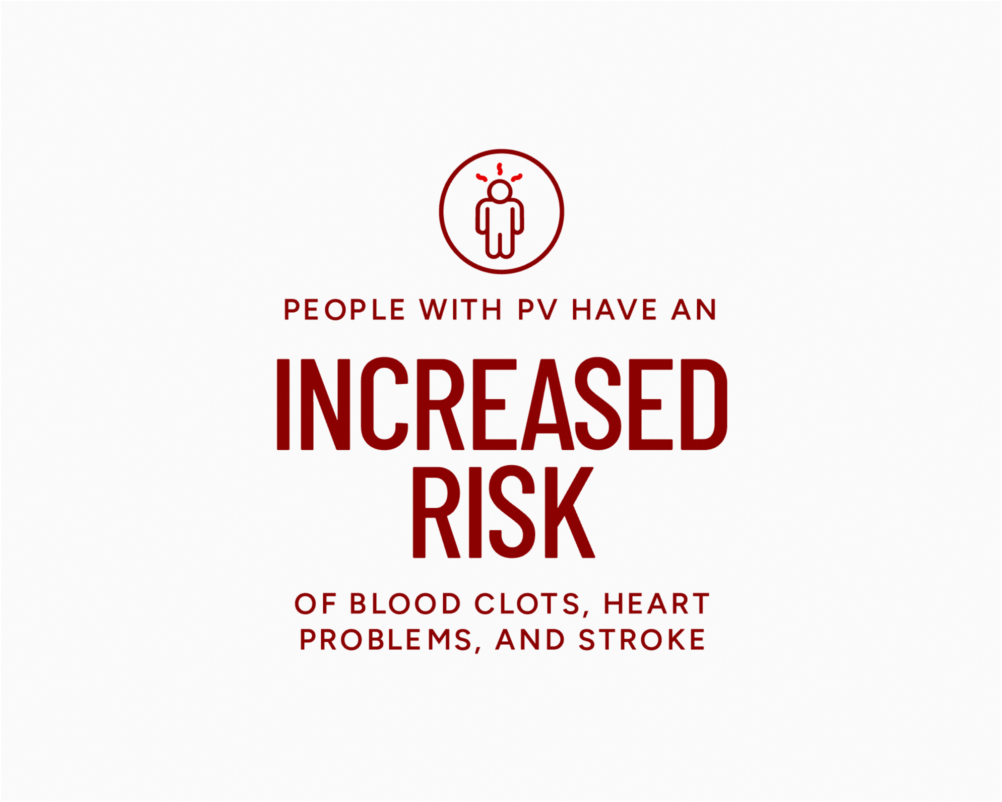
What is polycythemia vera?
Polycythemia vera (PV) is a treatable, chronic blood cancer, and a type of myeloproliferative neoplasm (MPN)

Prevalence of PV in the US
The number of people living with PV in the US is estimated to be ~148,000, with higher rates reported in males compared to females.
In PV, the bone marrow produces too many red blood cells. Red blood cells carry oxygen throughout your body.
Too many red blood cells in your blood raises your hematocrit (HCT, the percentage of red blood cells in your blood) to above 45%. This makes your blood thicker.
Controlled HCT means that it is consistently maintained below the 45% threshold.

The thicker blood caused by PV can raise your risk of blood clots, heart problems, and stroke.
An increase in HCT means that your blood is getting thicker and flowing more slowly through your body, along with the oxygen it carries. This can make you feel more tired and out of breath.
Feeling tired or confused (also called brain fog) from low iron is frustrating
But did you know that iron levels can impact red blood cells, increasing the risk of blood clots?

Tell your doctor about what you are feeling and find out what that means for your health.
Managing PV includes understanding your lab results and more—it’s about how you’re functioning, coping, and living.